AMD Radeon RX 570 4GB Review
Why you can trust Tom's Hardware
Temperature & Clock Frequency
Cold graphics cards perform best. But everyone knows they don't stay cold for long. That's why we test Asus' Strix RX 570 OC on an open bench table and in a closed case.
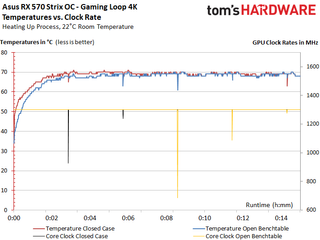
During our gaming loop, the GPU's temperature ends up between 69 and 70°C. Those readings are accompanied by a noticeable amount of noise. The Strix RX 570 OC does manage to maintain its 1300 MHz boost clock rate though, representing a significant improvement over last generation's version. The benefit primarily comes from a higher power limit and more aggressive cooling.
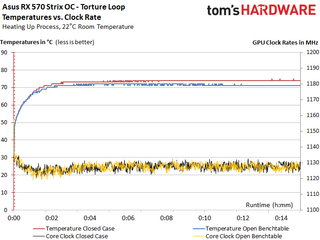
The stress test pushes Asus' fans to their limit in order to maintain 75°C in a closed case.
Board Temperatures
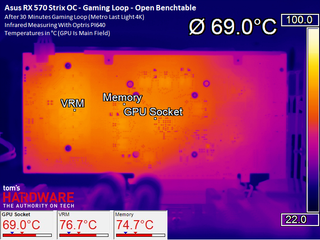
Asus made significant changes to its board design, and we're happy to report that they're an improvement. The Strix RX 570 OC might get a little loud during our gaming loop, but its temperatures stay well within the range we like to see.
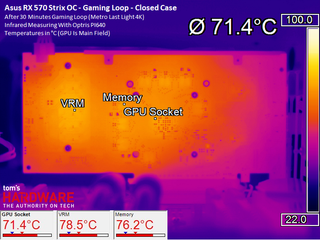
The same goes for our thermal readings in a closed case; they're definitely acceptable. It doesn't seem like there’s a lot of headroom left though, so don't be surprised if overclocking potential is limited.
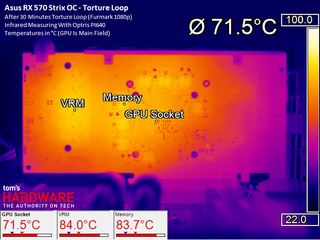
Our results start to unravel during the stress test due to a lack of cooling on the memory modules. Even with the benefit of an open test bench, Elipda's GDDR5 stays just below its maximum rated temperature.
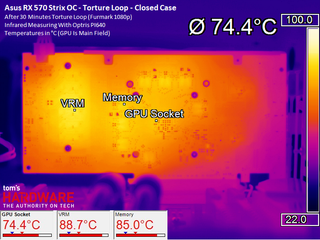
It’s game-over for the memory modules in a closed PC case. Manually dialing in a faster fan speed is pointless because the fans are already spinning at ~80%.
MORE: Best Graphics Cards
MORE: Desktop GPU Performance Hierarchy Table
MORE: All Graphics Content
Stay on the Cutting Edge
Join the experts who read Tom's Hardware for the inside track on enthusiast PC tech news — and have for over 25 years. We'll send breaking news and in-depth reviews of CPUs, GPUs, AI, maker hardware and more straight to your inbox.
